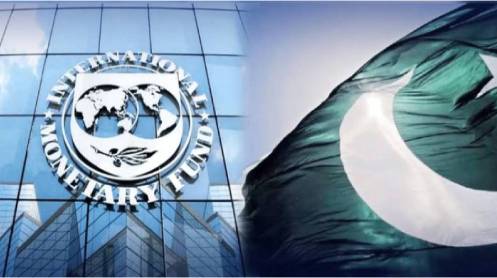ISLAMABAD: Pakistan is on track to secure a staff-level agreement (SLA) for an International Monetary Fund (IMF) bailout exceeding $6 billion this month, having fulfilled all the lender’s requirements in its annual budget, the state minister for finance announced to Reuters.
The country has introduced stringent revenue targets in its budget to gain IMF approval for the loan, crucial for averting another economic crisis, despite growing domestic discontent over new taxation measures.
“We hope to culminate this (IMF) process in the next three to four weeks,” said Minister of State for Finance, Revenue, and Power Ali Pervaiz Malik on Wednesday, aiming to finalize the SLA before the IMF board recess. Malik indicated that the package could be “north of $6 billion,” emphasizing the primary focus on IMF validation.
The IMF has not yet commented on the matter.
Pakistan’s tax revenue target for the fiscal year beginning July 1 is set at 13 trillion rupees ($47 billion), a nearly 40% increase from the previous year. The fiscal deficit is projected to drop to 5.9% of GDP from 7.4% the previous year. Malik noted that the challenging budget was designed to secure the IMF programme, and the lender was satisfied with the revenue measures implemented.
“There are no major issues left to address now that all major prior actions have been met, the budget being one of them,” Malik stated. While the budget may gain IMF approval, analysts warn it could incite public anger. “Obviously they (budget reforms) are burdensome for the local economy, but the IMF programme is all about stabilisation,” Malik added.
Sakib Sherani, an economist and head of Macro Economic Insights, stressed the urgency of a quick IMF deal to mitigate pressure on Pakistan’s foreign exchange reserves and currency amidst maturing debt repayments and the effects of lifting previous capital and import controls. “If it takes longer, then the central bank may be forced to temporarily re-instate import and capital controls,” Sherani warned. “There will be a period of uncertainty, and one casualty is likely to be the rally in equities.”
Despite these challenges, the Pakistan Stock Exchange’s KSE-100 index has risen by roughly 10% since the budget presentation on June 12, buoyed by continued optimism about securing the IMF bailout package to support the struggling economy.




